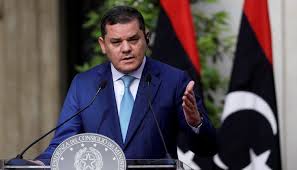 The United Nations Thursday rejected the appointment of former Interior Minister Fathi Bashagha as the country’s new Premier in replacement of the incumbent Abdul Hamid Dbeibah by the parliament, Al Wasat news outlet reports.
The United Nations Thursday rejected the appointment of former Interior Minister Fathi Bashagha as the country’s new Premier in replacement of the incumbent Abdul Hamid Dbeibah by the parliament, Al Wasat news outlet reports.
The state legislature headquartered in Tobruk according to its spokesman Abdullah Belhaq voted unanimously to appoint Bashagha and granted him confidence.
The former Interior Minister who served in the previous administration known as Government of National Accord (GNA), also according to the Speaker of the house, Aqila Saleh, received support from the High Council of State, the upper house.
The self-style Libya National Army headed by rebel commander and the country’s eastern region strongman Khalifa Haftar also welcomed Bashagha’s appointment.
Both Haftar and Bashagha met in December during a meeting believed to have paved the way for the Thursday appointment.
In reaction to the appointment UN Chief’s spokesperson Stephane Dujarric indicated that the global body does not recognize the vote and continues to work with Dbeibah.
“We have seen the reports of the appointment of another prime minister,” he said.
“Our position remained unchanged.”
The Secretary-General is following closely the situation in Libya and calls on all parties and institutions to continue to ensure that such critical decisions are taken in a transparent and consensual manner, the spokesperson said.
The Secretary-General further calls on all parties to continue to preserve stability in Libya as a top priority. He reminds all institutions of the primary goal of holding national elections as soon possible in order to ensure that the political will of the 2.8 million Libyan citizens who registered to vote is respected.
Dbeibah himself has condemned his removal arguing that the move violates the political roadmap agreed and backed by the UN with elections in December as climax.
“The goal of the political agreement and the road map is to reach the elections and the approved road map stipulates that the government ends by reaching elections.”
“The Presidential Council is the one who has the right to change the government according to the road map in Geneva,” he added. The Libya parliament argues that Dbeibah’s mandate came to an end on Dec. 24; the date of failed presidential elections.


